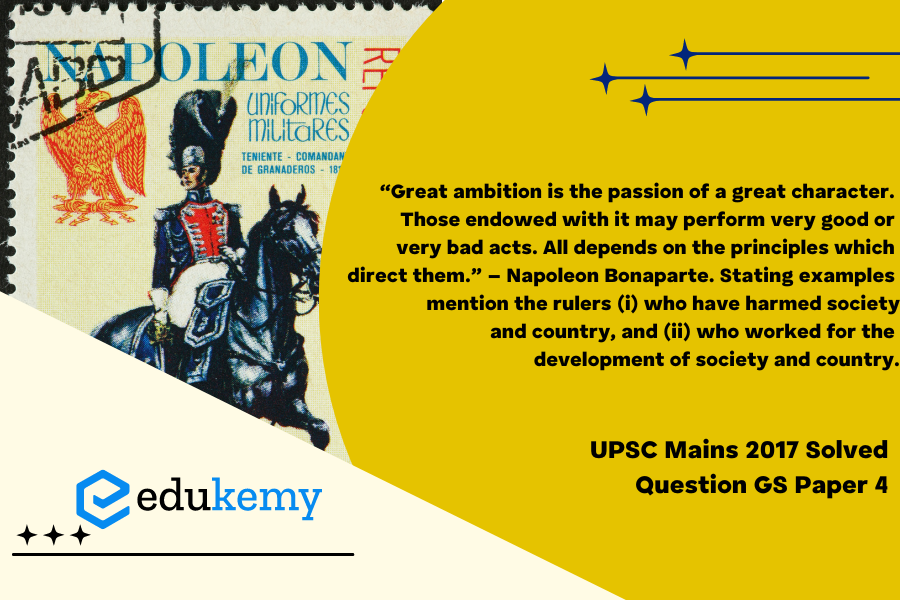Napoleon Bonaparte, a towering figure in history, once remarked that great ambition is the driving force behind a great character, shaping the actions of individuals who possess it. This profound observation underscores the dual nature of ambition, which can lead individuals to either altruistic or detrimental pursuits, depending on the principles that guide them. Throughout history, we find examples of rulers whose ambitions have left lasting impacts on society and their countries. On one hand, there are leaders who, fueled by destructive ambition, have harmed both their society and nation. On the other hand, there are visionary leaders whose ambitious pursuits have contributed to the development and betterment of their societies and countries. Examining these contrasting examples provides insight into the profound influence of ambition on the course of history.
Tag: Human Values – lessons from the lives and teachings of great leaders, reformers and administrators.
Contents
Decoding the Question:
- In Introduction, write a brief understanding of the quote.
- In Body,
- In the context of the quote, give examples of the rulers who worked for the development of society and country.
- Also, give examples of the rulers who harmed the society and country by their deeds.
- Conclude, by summarizing the outcome or impact.
Answer:
Great ambition has been a double-edged sword since the time immemorial. There are many examples around the world where it changed the course of history and mankind in both a negative and positive manner.
Having ambitions is a key foundation for a person to challenge the status quo in his individualistic or public life where he/she would want to improve their being.

Rulers who had great ambition worked for the development of society and country:
- Ashoka was a great ruler of the Mauryan Empire. He is the only ruler in history who gave up conquest after winning a war. He was inspired by the teachings of Buddha. He was responsible for one of the earliest welfare states – guided by the principle of Dhamma comprising compassion, charity, purity, self-control, and truthfulness. Despite the territorial vastness of the empire, the state was dedicated to the harmony and well-being of not only its subjects but even animals.
- In modern India, Pt. Jawaharlal Nehru took over the reign of the country devastated by 200 years of colonial rule and a violent partition. Guided by the principles of secularism, tolerance, scientific temper and compassion; he led the country on the path toward stability and built a base for its emergence as a strong country decades later.
- Martin Luther King of the US relentlessly campaigned for the civil rights of the Black community. In the process, he even sacrificed his life. But thanks to his efforts, the rights of the Black community were organized and the country became more united and peaceful.
Rulers who had great ambition but their deeds had harmed society:
- Many dictators in the world viz. Muammar Gaddafi(Libya), Robert Mugabe(Zimbabwe), Saddam Hussein(Iraq) have amassed power and wealth for themselves. In the process, they have ruined the economies of their countries, violated the human rights of citizens.
- Adolf Hitler wanted to see Germany as a world leader by consolidating territory from other European countries. For the achievement of his narrow pursuit, he led the continent to a war, which resulted in deaths of millions.
The above two examples bring out the contradiction in actions when guided by differing principles – one wherein ambition based on weak principles resulted in harm to society (Hitler) and one where ambition based on ethical and moral principles led to the development of society.
In case you still have your doubts, contact us on 9811333901.
For UPSC Prelims Resources, Click here
For Daily Updates and Study Material:
Join our Telegram Channel – Edukemy for IAS
- 1. Learn through Videos – here
- 2. Be Exam Ready by Practicing Daily MCQs – here
- 3. Daily Newsletter – Get all your Current Affairs Covered – here
- 4. Mains Answer Writing Practice – here


